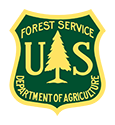2015 North American Carbon Program Meeting completed
The fifth biennial North American Carbon Program (NACP) PI meeting (PIM5) was convened in Washington D.C. from January 26 to 29, 2015. Over 370 participants and speakers from the U.S., Canada and Mexico attended this event which included 77 talks and 254 posters. Several break-out group discussions were also convened to focus on specific science and policy themes of the meeting.
An international planning committee representing scientists and governmental program managers from all 3 NACP nations organized this gathering which was supported by USGCRP's Carbon Cycle Interagency Working Group/US Carbon Cycle Science Program. Participants primarily comprised AmeriFlux, Fluxnet, NACP, CarboNA principal investigators, researchers & students; those interested in the carbon cycle of North America & adjacent coastal waters; scientists and government managers associated with US, Canadian, and Mexican Carbon Programs; social scientists, policy makers, stakeholders; and others seeking to improve the scientific basis of decision making.
Preceded by an NACP data Management Practices workshop for Early Career Scientistsand followed by a 1.5 days long Amerflux PI meeting, PIM5 was successfull in updating the NACP stakeholders on the progress of research in North American carbon cycle science and related science and science-policy advances, and their remaining needs and opportunities. Invited speakers included Rick Duke and Nathan Hultman from CEQ (White House), Dennis Paradine (British Columbia Ministry of the Environment), Emily Pidgeon (Conservation International), Randy Olson (Filmmaker), Rick Spinrad (NOAA CHIEF SCIENTIST), Werner Kurz (Canadian Forest Service), Marcia McNutt (Science Magazine), Steve Running (University of Montana), Margaret Torn (LBNL), Thomas Armstrong (formerly OSTP/USGCRP/DOI), Rachel McCormick (Canadian Embassy), federal and community scientists, funders and practitioners from the U.S., Canada and Mexico. A side meeting of CarboNA was also convened by CCIWG co-chair Nancy Cavallaro (USDA-NIFA) and Catherine St. Marie (Canadian Forest Service).
Some of the sessions described above are listed below, with links to their respective presentations. For the entire list of sessions and publishable presentation slides, please follow this link. For an overview of the prior meeting, see this article. Also see this related video and blog post focused on the communication session.
| Special Topic Session 1: North American Carbon Cycle en Route to COP-21 in Paris Chairs: Gyami Shrestha, Margaret Torn, Kevin Gurney |
| Climate policy and the road to Paris (Nate Hultman: Deputy Associated Director for Energy and Climate for the White House Council on Environmental Quality.) |
| How can terrestrial carbon science contribute to the success of future climate agreements? (Werner Kurz: Senior Research Scientist at the Canadian Forest Service (Natural Resources Canada) in Victoria, BC) [presentation] |
| Coastal Blue Carbon: a transformational tool for conservation (Emily Pidgeon - Senior Director - Strategic Marine Initiatives at Conservation International Location Washington D.C., Jennifer Howard - Conservation International) [presentation] |
| Keynote Session: Current hot topics in carbon cycle science Chairs: Debbie Huntzinger, John Miller |
| Are carbon scientists (us) ready for the policy big leagues? (Steven Running) [abstract] [presentation] |
| The Implications of Deep Reductions in Greenhouse Gas Emissions for Carbon Cycle Science (Margaret Torn) [abstract] [presentation] |
| Science Session 1: NACP Program Highlights and Syntheses Chairs: Rodrigo Vargas, Peter Griffith |
| The view from above: How have atmospheric observations informed our understanding of the North American carbon cycle? (Anna Michalak) |
| Are we there yet? Progress in diagnosis and prediction of regional to continental terrestrial carbon stocks and fluxes (Ankur Desai) [abstract] [presentation] |
| An update on the North American Coastal Carbon Synthesis (Raymond Najjar) [presentation] |
| Special Topic Session 4: North American Carbon Policy: how can carbon science support current and proposed policy approaches Chairs: Ariana Sutton-Grier, Gyami Shrestha |
| Successfully bridging the science-policy gap: the British Columbia carbon policy experience and needs (Dennis Paradine: Manager, Climate Change Policy, Climate Action Secretariat, BC Ministry of Environment) [presentation] |
| Developing science and policy on blue carbon: Information needs (Steve Crooks: Climate Change Program Manager, ESA| Environmental Hydrology) [presentation] |
| Cap and trade and complementary policies in California: AB32 and Beyond (Amber Mahone: Director, Greenhouse gas and policy analysis, Energy + Environmental Economics, Inc.) [presentation] |
| Traffic report from the Federal climate policy Interstate (Michael Gillenwater: Executive Director and Dean, Greenhouse Gas Management Institute) [presentation] |
| Science Session 5: Carbon Management and Decision Support Chairs: Nancy French, Chris Swanston |
| NACP Research Supporting Mandated Forest Service Carbon Monitoring Activities (Sean Healey) [abstract] [presentation] |
| The Potential Contribution of Canada’s Forest Sector to Climate Change Mitigation (Werner Kurz) [abstract] [presentation] |
| How can bottom-up greenhouse gas flux quantification at sub-national scales provide near-term decision-support? (Kevin Gurney) [abstract] |
| Understanding user needs for carbon monitoring information (Riley Duren) [abstract] |
| Developing Policy-Relevant 'Blue Carbon' Protocols for Monitoring and Verification - Linking soil and satellite data to reduce uncertainty in coastal wetland carbon storage fluxes for national GHG inventories and market incentives (Lisamarie Windham-Myers) [abstract] [presentation] |
|
Developing a pilot indicator system for U.S. climate changes, impacts, vulnerabilities, and responses (Melissa Kenney, Anthony Janetos) [abstract] [presentation] |
| Science Session 6: Ecosystem Carbon-Climate Feedbacks Chairs: Daniel Hayes, Martin Hernandez |
| Altered forest growth rates projected for North America with regionally variable climatic response regimes (Flurin Babst) [abstract] |
| US Forests Are Showing Increased Rates of Stress-related Disturbance in Response to a Changing Climate (Warren Cohen) [abstract] [presentation] |
| Vegetation turnover and nitrogen feedback drive carbon sequestration in response to elevated CO2: Results from model-data synthesis in temperate forest FACE experiments. (Anthony Walker) [abstract] [presentation] |
| The importance of permafrost thaw, fire and logging disturbances as driving factors of historical and projected carbon sequestration in Alaskan terrestrial ecosystems (Helene Genet) [abstract] |
| Representing soil carbon dynamics in Earth system models to improve future IPCC assessments (Yiqi Luo) [abstract] [presentation] |
| A stormy future for coastal carbon: Assessing impacts of climatic perturbation on carbon transport, processing, and storage in coastal regions. (Joseph Crosswell) [abstract] [presentation] |
| Keynote Session: Next Steps: Carbon Science and Policy Opportunities Chair: Ray Najjar |
| U.S. Climate Change Policy (Rick Duke: Deputy Director for Climate Policy the White House Office of Energy and Climate Change; Associate Director for Energy and Climate for the White House Council on Environmental Quality.) |
| Effective Communication of Scientific Uncertainty in Policy Contexts (Marcia McNutt: Editor-in-Chief, Science family of journals AAAS) [presentation] |
| Designing a Carbon Observing System (Rick Spinrad: NOAA Chief Scientist) |




